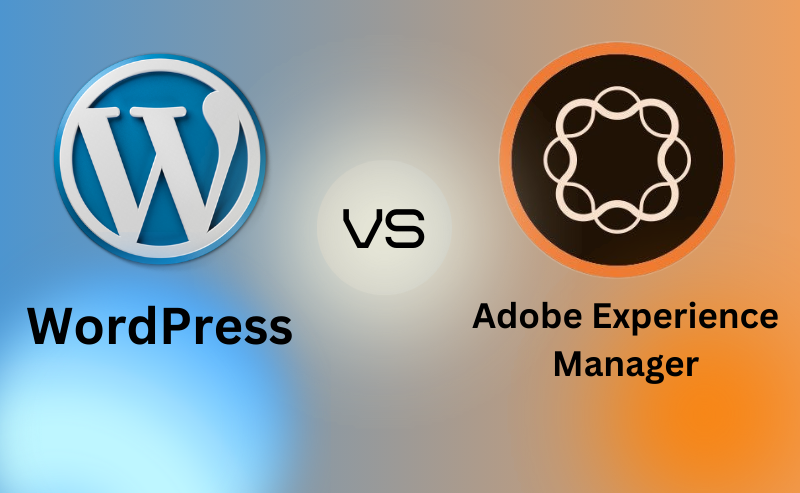When comparing TYPO3 and WordPress, it’s crucial to think about what you need and your technical skills. TYPO3 is a powerful and customizable platform, perfect for big websites and experienced users. Meanwhile, WordPress is user-friendly and great for small to medium sites, especially for beginners without coding knowledge.
In terms of functionality, TYPO3 offers advanced customization features, while WordPress has plenty of affordable themes and plugins. When it comes to cost-effectiveness, TYPO3 can be pricier due to its complexity and the need for technical expertise. On the other hand, WordPress provides extensive support and budget-friendly options for themes and plugins.
In terms of security, TYPO3 focuses on encryption and has a dedicated update team, while WordPress has a larger user base with numerous security plugins, themes, and an auto-update feature.
When it comes to customization, TYPO3 is highly customizable but requires technical expertise, making it suitable for larger enterprises. On the other hand, WordPress offers a wide range of plugins and themes for customization and is popular among small to medium businesses and individuals.
In conclusion, when choosing between TYPO3 and WordPress, it’s important to consider your project requirements and technical proficiency. Additionally, A2 Hosting and Bluehost are highly recommended hosting options for both TYPO3 and WordPress sites, providing reliable support for the specific needs of each platform.
What Are The Main Differences Between Typo3 and WordPress in terms of Functionality?
The main differences between typo3 and WordPress in terms of functionality are customization and complexity. Typo3 is powerful and feature-rich, suitable for large and complex websites, with extensive customization options. WordPress, on the other hand, is user-friendly and easy to set up, ideal for small to medium-sized websites. It offers a wide range of plugins and themes for customization. WordPress also has a larger community and marketplace, providing ample resources and support options. When choosing between typo3 and WordPress, consider your project requirements and technical expertise.
How Does The Ease of Use Compare Between Typo3 and WordPress for Beginners?
The ease of use between TYPO3 and WordPress for beginners varies significantly. WordPress is widely known for its user-friendly interface and intuitive features, making it an ideal choice for beginners. Its simplicity allows users to quickly create and customize websites without any coding knowledge. TYPO3, on the other hand, has a steeper learning curve and is more suitable for experienced users or developers. Its powerful features offer greater flexibility and scalability, but they require a deeper understanding of the platform.
For beginners, WordPress provides a user-friendly experience with its intuitive dashboard, drag-and-drop editors, and extensive plugin library. It allows users to easily manage content, customize themes, and add functionality without technical expertise. TYPO3, while offering more advanced features and customization options, can be overwhelming for beginners due to its complex interface and coding requirements.
When considering hosting providers, options like Bluehost or A2 Hosting are worth exploring, as they provide reliable services for both TYPO3 and WordPress.
Which Is More Cost-Effective When Comparing Typo3 vs WordPress for Small Businesses?
When comparing Typo3 and WordPress for small businesses, WordPress is the more cost-effective option. Typo3 may offer robust features and scalability, but it requires more technical expertise and resources, making it costlier for small businesses. WordPress, on the other hand, is user-friendly and offers affordable themes and plugins that can be customized to suit specific business needs.
WordPress also has a larger community of developers and users, providing readily available support and resources. This saves small businesses time and money when troubleshooting or making updates. Hosting providers like Bluehost and A2 Hosting specialize in WordPress, offering optimized plans and reliable customer service tailored to small business requirements.
In conclusion, while Typo3 may be powerful for larger enterprises, WordPress’s cost-effectiveness, ease of use, and extensive support make it the more suitable choice for small businesses.
In terms of Security Features, How Does Typo3 Compare to WordPress?
In terms of security features, Typo3 and WordPress have different approaches. Typo3 focuses on security with built-in measures like password encryption and secure file handling. It also has protection against SQL injection attacks and a dedicated security team that regularly releases updates and patches.
WordPress also takes security seriously but has a larger user base, making it a more attractive target for hackers. However, it offers a vast ecosystem of security plugins and themes to enhance its security features. It also has an auto-update feature to ensure your site is always running the latest version with security fixes.
Both Typo3 and WordPress provide security features, but Typo3’s emphasis on security and regular updates may make it a preferred choice for those prioritizing security. However, factors like hosting provider and user practices also play a role in website security. Choosing reputable hosting providers like Bluehost or A2 Hosting can further enhance your website’s security.
Can You Provide a Comparison Between Typo3 and WordPress in terms of Customization Features?
TYPO3 and WordPress offer different approaches to customization features. TYPO3 is highly flexible and allows for complex and extensive customization, making it ideal for larger enterprises with specific requirements. However, TYPO3 has a steep learning curve and requires more technical expertise.
In contrast, WordPress is known for its user-friendly interface and ease of customization. It offers a vast selection of themes, plugins, and widgets that enable users to personalize their websites without extensive coding knowledge. This makes WordPress a popular choice for small to medium-sized businesses and individuals seeking a quick and straightforward way to create and customize their websites.
When deciding between TYPO3 and WordPress for customization features, it’s crucial to consider your specific needs and technical proficiency. If you require advanced customization options and have the necessary technical resources, TYPO3 may be the better choice. However, if you prefer a user-friendly platform with a wide range of customization options, WordPress is a solid option to consider.
TYPO3 vs WordPress: Which Platform Best Suits Your Website Creation Needs?
In conclusion, the ‘TYPO3 vs WordPress’ comparison highlights key differences that cater to varied user needs and project scales. TYPO3 emerges as a robust solution for large-scale enterprises that demand advanced customization and higher levels of flexibility, albeit with a greater need for technical expertise.
On the other hand, WordPress stands out for its ease of use, cost-effectiveness, and extensive customization options, making it an ideal platform for small to medium-sized businesses and individuals looking for an intuitive website creation experience.
Ultimately, the choice between TYPO3 and WordPress should be guided by your specific project requirements, technical ability, and long-term digital strategy. Both platforms offer distinct advantages that can be harnessed to build a strong online presence when paired with reliable hosting services like Bluehost or A2 Hosting.


